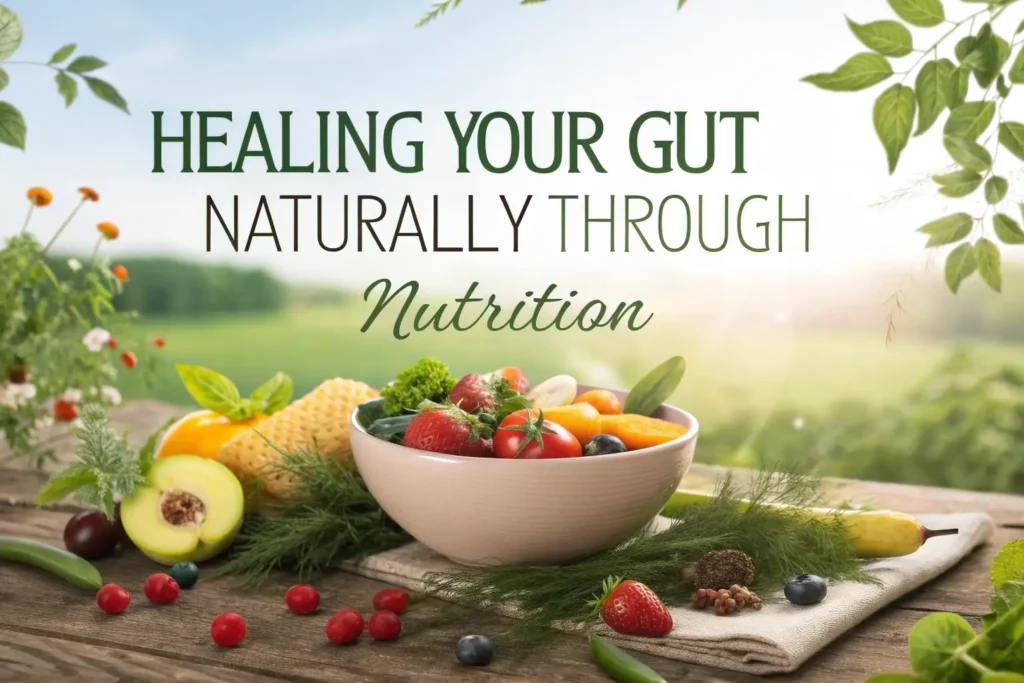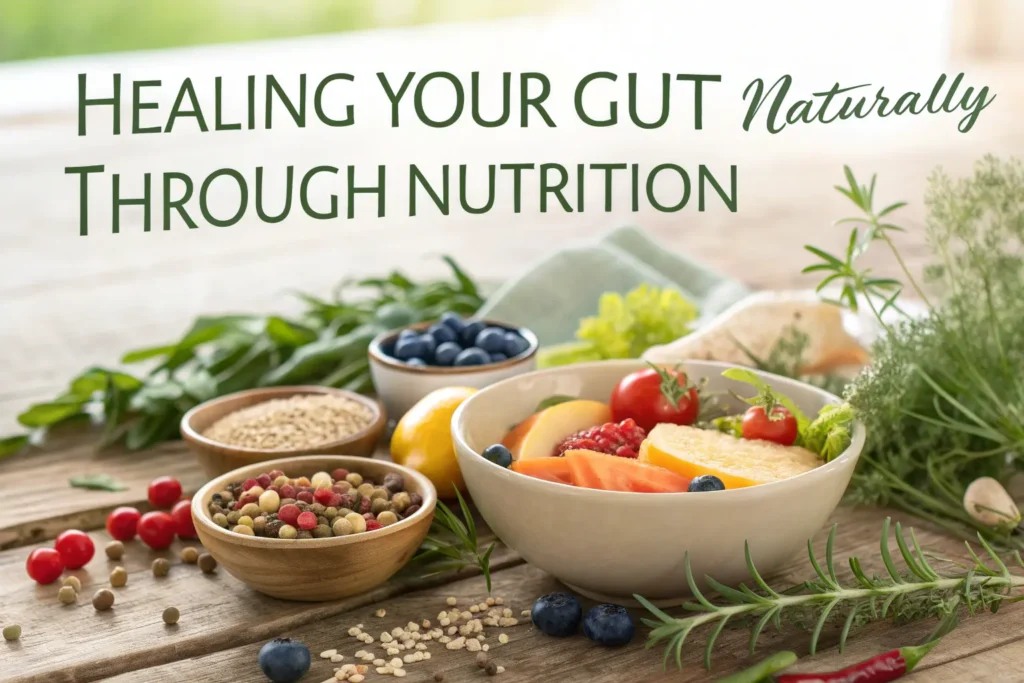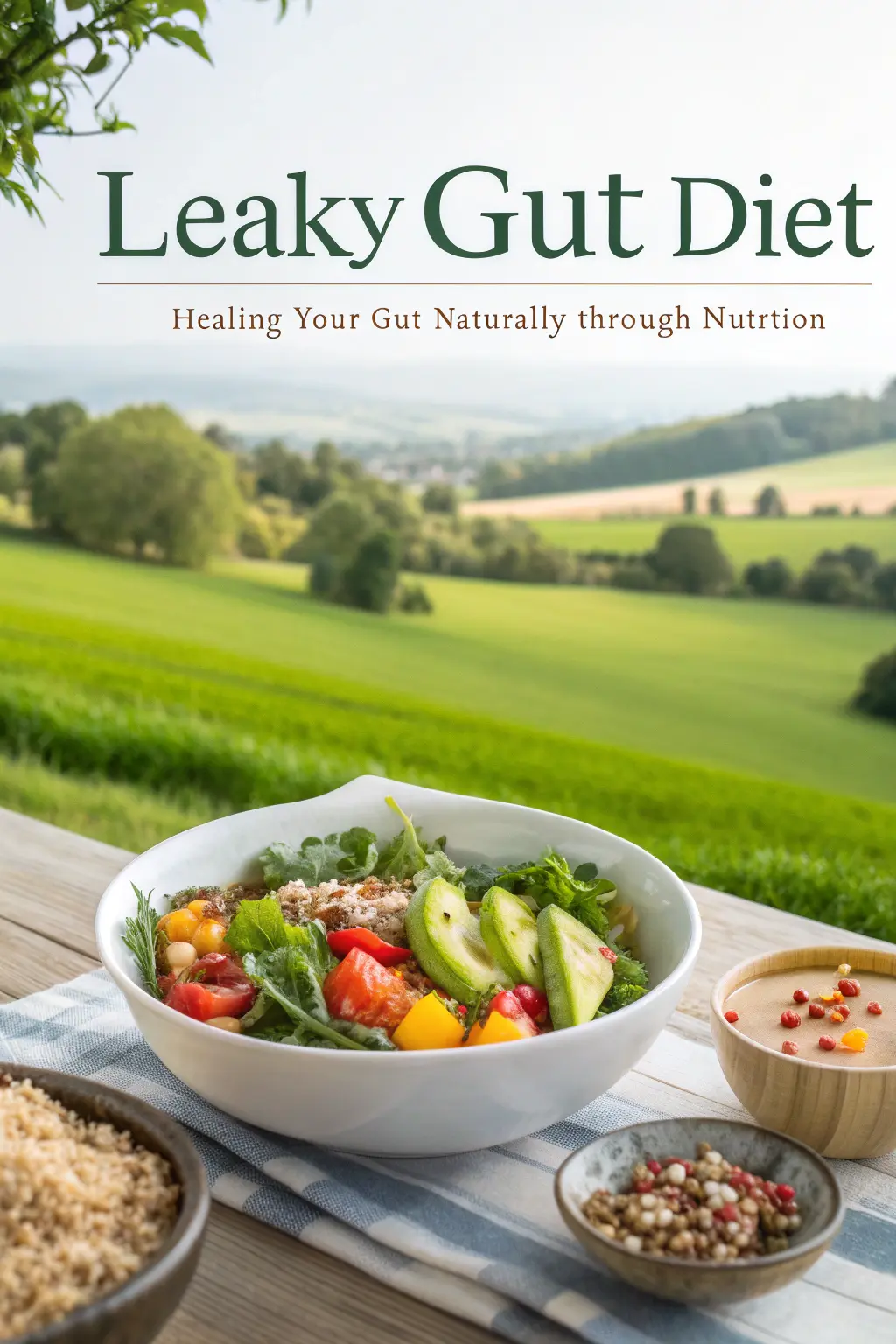Your gut health affects far more than just digestion. When the intestinal barrier becomes compromised—a condition often called “leaky gut“—it can impact your immune system, energy levels, and overall wellbeing. The good news is that targeted nutrition can play a powerful role in healing and restoring gut barrier function naturally.
Table of Contents
Understanding Leaky Gut Syndrome
Leaky gut, medically known as increased intestinal permeability, occurs when the tight junctions between intestinal cells become loose or damaged. This allows toxins, undigested food particles, and bacteria to “leak” through the intestinal wall into the bloodstream, potentially triggering inflammation and immune responses throughout the body.
Common symptoms associated with leaky gut include:
- Digestive issues like bloating, gas, and irregular bowel movements
- Food sensitivities and allergies
- Fatigue and low energy
- Joint pain and inflammation
- Skin problems such as eczema or acne
- Mood changes and brain fog
- Frequent infections

The Root Causes of Intestinal Permeability
Several factors can contribute to compromised gut barrier function:
Dietary Triggers: Processed foods, excessive sugar, refined carbohydrates, and certain food additives can damage the intestinal lining over time. Gluten and other inflammatory proteins may also contribute to increased permeability in sensitive individuals.
Chronic Stress: Prolonged stress elevates cortisol levels, which can weaken the intestinal barrier and disrupt the balance of beneficial gut bacteria.
Medications: Frequent use of NSAIDs, antibiotics, and certain other medications can damage the gut lining and alter the microbiome.
Infections: Bacterial overgrowth, parasites, and yeast infections can compromise gut barrier integrity.
Environmental Toxins: Exposure to pesticides, heavy metals, and other environmental toxins can contribute to intestinal inflammation.
The Leaky Gut Healing Diet: Foods to Embrace
A therapeutic approach to eating can help restore gut barrier function and reduce inflammation. Focus on incorporating these healing foods into your daily routine:
Bone Broth and Collagen-Rich Foods
Bone broth provides glycine, proline, and other amino acids that support collagen production and gut lining repair. Sip warm bone broth between meals or use it as a base for soups and stews. Other collagen-supporting foods include grass-fed gelatin, wild-caught fish, and pastured eggs.
Fermented Foods for Microbiome Support
Healthy gut bacteria are essential for maintaining intestinal barrier function. Include naturally fermented foods like sauerkraut, kimchi, kefir, yogurt with live cultures, miso, and kombucha. These foods provide beneficial probiotics that help crowd out harmful bacteria and support immune function.
Anti-Inflammatory Fats
Omega-3 fatty acids help reduce intestinal inflammation and support gut barrier repair. Focus on wild-caught fatty fish like salmon, sardines, and mackerel. Plant-based options include walnuts, flaxseeds, chia seeds, and hemp hearts. Coconut oil contains medium-chain triglycerides that may have antimicrobial properties.
Prebiotic-Rich Vegetables
Fiber-rich vegetables feed beneficial gut bacteria and support short-chain fatty acid production, which nourishes the intestinal lining. Emphasize garlic, onions, leeks, asparagus, artichokes, and leafy greens. Start slowly if you’re not used to high-fiber foods to avoid digestive discomfort.
Healing Herbs and Spices
Turmeric contains curcumin, a powerful anti-inflammatory compound. Ginger supports digestion and reduces inflammation. Other beneficial herbs include slippery elm, marshmallow root, and aloe vera, which can soothe the intestinal lining.
Quality Proteins
Choose easily digestible, high-quality protein sources like grass-fed beef, pastured poultry, wild-caught fish, and eggs. These provide essential amino acids needed for tissue repair and immune function.
Foods to Avoid During Gut Healing
Certain foods can perpetuate inflammation and hinder healing progress:
Gluten-Containing Grains: Even if you don’t have celiac disease, gluten can increase intestinal permeability in some people. Consider eliminating wheat, barley, rye, and other gluten-containing grains during the healing phase.
Processed and Packaged Foods: These often contain additives, preservatives, and artificial ingredients that can irritate the gut lining. Focus on whole, unprocessed foods instead.
Sugar and Refined Carbohydrates: These feed harmful bacteria and yeast, potentially worsening gut dysbiosis. Limit or eliminate candy, pastries, white bread, and sugary drinks.
Industrial Seed Oils: Highly processed oils like soybean, corn, and canola oil are high in omega-6 fatty acids and can promote inflammation. Use coconut oil, olive oil, or avocado oil instead.
Alcohol: Alcohol can damage the intestinal lining and disrupt the gut microbiome. Consider eliminating or significantly reducing alcohol consumption during healing.
NSAIDs: These medications can damage the gut lining. Work with your healthcare provider to find alternatives if you regularly use pain relievers.
Creating Your Gut-Healing Meal Plan
Morning: Start your day with a cup of bone broth or herbal tea. For breakfast, try a vegetable omelet cooked in coconut oil, or a smoothie with coconut milk, berries, and collagen powder.
Midday: Focus on easily digestible proteins with cooked vegetables. A simple lunch might include grilled chicken with steamed broccoli and sweet potato, seasoned with turmeric and ginger.
Evening: End the day with another serving of bone broth and a light dinner of wild-caught fish with sautéed leafy greens and avocado.
Snacks: Keep healing snacks on hand like fermented vegetables, coconut yogurt, or a small handful of walnuts.
Lifestyle Factors for Gut Healing
Nutrition is just one piece of the puzzle. Supporting lifestyle factors include:
Stress Management: Practice stress-reduction techniques like meditation, deep breathing, or gentle yoga. Chronic stress can undo dietary improvements.
Quality Sleep: Aim for 7-9 hours of restorative sleep each night. Poor sleep can disrupt gut barrier function and immune health.
Regular Movement: Gentle exercise supports healthy digestion and reduces inflammation. Walking, swimming, or yoga are excellent options.
Hydration: Drink plenty of clean, filtered water throughout the day to support detoxification and cellular function.

Timeline and Expectations
Gut healing is a gradual process that varies from person to person. Some people notice improvements in energy and digestion within a few weeks, while others may need several months to see significant changes. Consistency is key—small, sustainable changes are more effective than dramatic short-term restrictions.
Most practitioners recommend following a strict healing protocol for at least 3-6 months before gradually reintroducing potentially problematic foods to assess individual tolerance.
When to Seek Professional Support
While dietary changes can be incredibly powerful, some cases of leaky gut may require additional support. Consider working with a functional medicine practitioner, registered dietitian, or healthcare provider if you experience severe symptoms, have multiple food sensitivities, or aren’t seeing improvements after several months of dietary changes.
Professional testing can help identify specific triggers, nutrient deficiencies, or underlying infections that may be contributing to gut barrier dysfunction.
Moving Forward with Confidence
Healing your gut naturally through nutrition is an empowering journey that can transform your health from the inside out. By focusing on nourishing, anti-inflammatory foods while avoiding common triggers, you’re giving your body the tools it needs to repair and restore optimal gut function.
Remember that healing takes time, and everyone’s journey is unique. Be patient with yourself, celebrate small victories, and trust in your body’s remarkable ability to heal when given the right support. Your gut—and your overall health—will thank you for the investment in proper nutrition and self-care.





